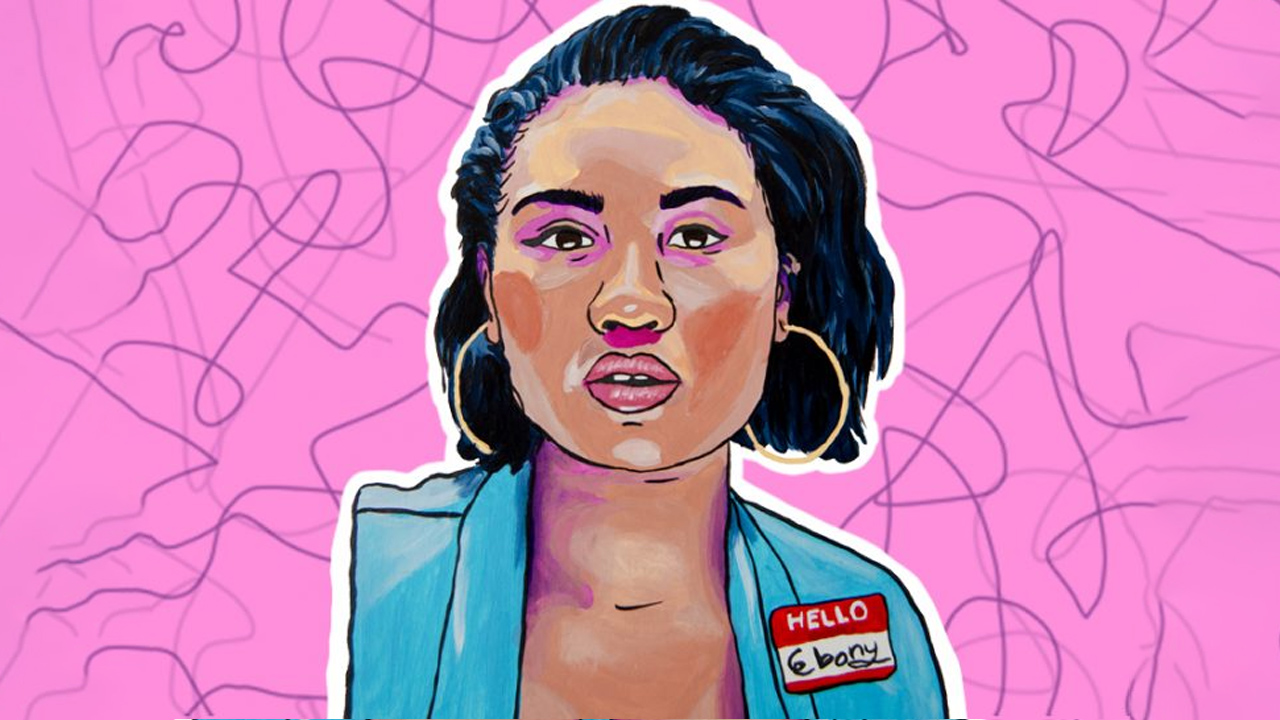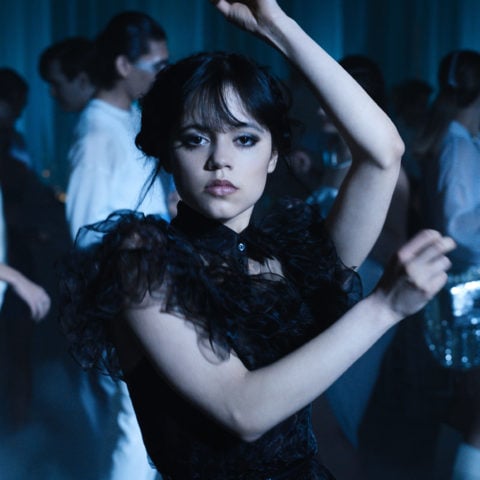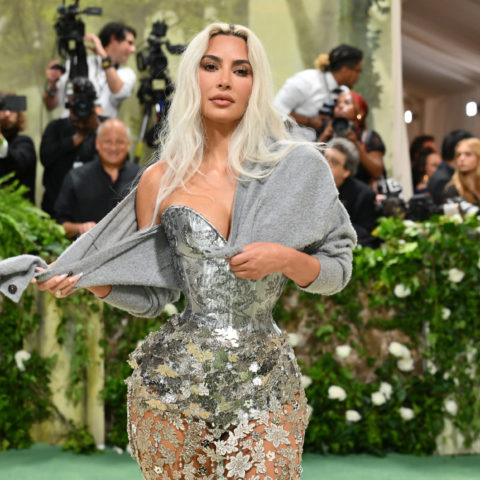I Know My Name Means Black—So You Can Stop Telling Me
My name is Ebony, and there’s no escaping the uncomfortable conversations about why I look the way I look

I was sitting cross-legged in an assembly hall, surrounded by my fellow ninth graders, many of whom I didn’t know, when it happened: The loudest guy in the class pointed at me, laughing, and said, “Your name’s a porn category!”
My face got hot and I scrunched my eyebrows as if I was shrugging his comment off, but in reality, I had no idea what he was talking about. At 14, I was super shy, going through the awkward stages of puberty and doing everything I could just to fit in with my mainly white peers—so all I wanted in that moment was to hide in a corner and forget that it even happened. Unfortunately, I know that memory will stay with me forever.
My name is Ebony. Ebony-Renee Cheyenne Baker, if you want to get official. It may be a mouthful, but it’s a name that my Jamaican father and Filipino mother thoughtfully crafted—Ebony is, of course, a synonym for the colour black, but it also means “dark beauty.” I’ve always worn it proudly, especially because, when my classes were full of Jenn As, Bs and Cs, I rarely met another Ebony. By the time I was in high school, I’d only ever met one other girl with the same name, another Black girl in kindergarten who spelled it with an ‘i.’ Actually, aside from the songs “Ebony and Ivory” and “Ebony Eyes” (the Rick James version, obvi), I hardly ever heard the word, period.
That’s partly why I didn’t know what to think when that boy related my name to pornography, because until then I assumed that most people thought my name was as unique and unusual as I did. And, more importantly, what could a teenaged boy actually know about porn? Turns out, a lot. It wasn’t until a few more boys told me the same thing that school year that I finally looked it up for myself. And when I found out that Ebony really was a porn category (and it remains a popular one—according to Pornhub’s 2018 Year in Review, it was the fourth most-viewed category of that year), the way I thought about my name became tainted. I’ve always loved introducing myself as Ebony, but after that, I started to wonder what people were thinking whenever I said it.
Those may have been the first times people made awkward comments about my name and race, but they definitely weren’t the last. My name has become a reminder that, like many biracial people, I will always be reduced to the way I look, and that my Blackness is what’s most visible.
Uber driver: sorry, I thought that other woman was you but when I saw that she was white I was like, that ain't Ebony pic.twitter.com/n5X6qA7Pqf
— ebony-renee (@ebonyreneebaker) February 5, 2019
Of course, people of colour with more “ethnic” names experience a level of prejudice that I simply don’t. Studies have shown that those with Black-sounding names on their resumes (think: Jamal or Imani) are less likely to get chosen for job interviews than those with anglo names like Connor or Sarah. But while my dictionary-approved moniker isn’t the most difficult to spell or pronounce, it still falls under that same category of names that reveal a person’s race.
As a result, people often feel like they’re allowed to make comments about the way I look, something that’s particularly jarring in social settings. When I meet a guy at a bar and I can tell he’s the type to be weird about my name—and yes, I can always tell—I usually try to avoid the conversation entirely by introducing myself as Michelle; it’s easy to digest and usually prompts no response at all. (It’s also my Starbucks name when I’m not in the mood to repeat myself.)
Maybe that seems like a step too far, but telling men my name hasn’t always been a delight. There’s always one guy who immediately thinks I’m joking and says something stupid like, “No, what’s your real name?” Or he’ll pause and give me a look as if to say, “You know that’s a porn name, right?” Or he’ll tell me that it’s sexy. That one’s a classic. And, of course, there’s the guy who’ll nod and not say anything… until it comes up later in the same conversation; “Sooo… Ebony, eh?” Cue gross wink (and an eye roll, on my part).
It’s not only in social situations. I worked in retail and as a restaurant server for years, and it became a daily occurrence for customers to comment on my name. From the woman who told me that Ebony is “the perfect name” for me (gee, I wonder why, ma’am?), to all of the white men who introduced themselves as Ivory, people always felt the need to point out in some way that yes, I am Black.
This was often frustrating for me because in most of those workplaces I was usually one of their few, if not only, Black servers or sales associates, and having customers further point that out was a reminder that I didn’t need. Not to mention, you definitely wouldn’t say to a stranger “I noticed you are Black”—so there was no reason for these exchanges to be happening at all.
These reactions *all* bring me back to that moment where I was sitting in that assembly hall and realized that my name amplified my Blackness, when I would have done anything just to blend in. Today, I am much more comfortable in my skin and proud of my ethnicities, but my name is still Ebony, so there’s no escaping the uncomfortable and unnecessary conversations about why I look the way I look.
But at the end of the day, my name will always be a part of my identity, just as my Blackness is. So, if that means having to constantly prove that my name and my roots are far from the only thing that defines me, I will just have to continue doing that work.
After all, isn’t that what we’ve been fighting to do all along?
This article was originally published on January 31, 2019.









